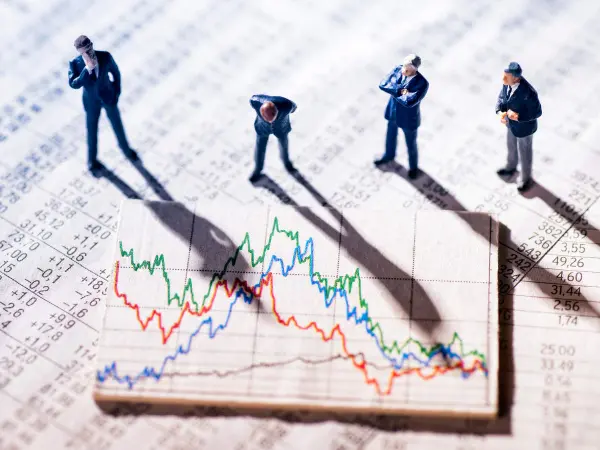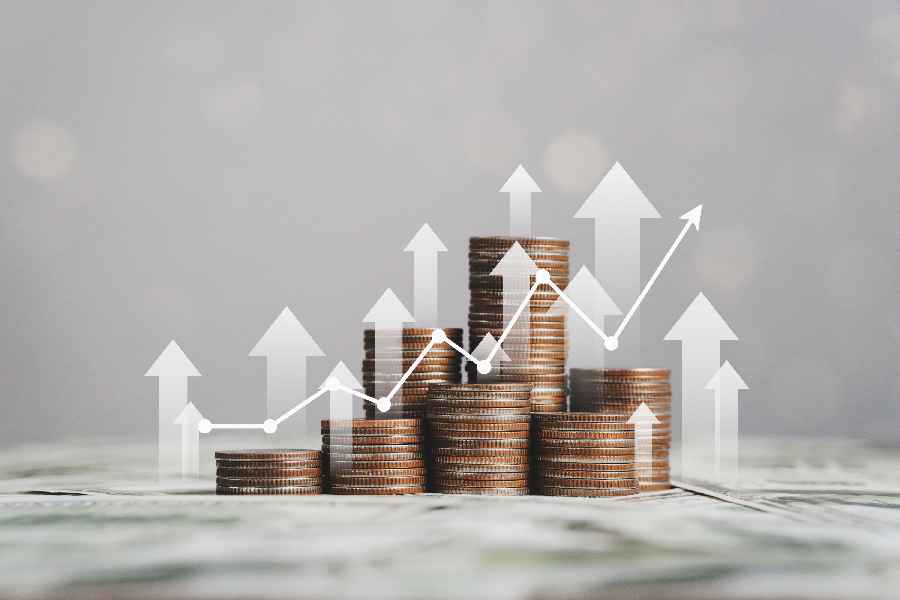trending
neon
Cirque du Soleil offers summer ticket deals
dining out
Celebs ditch the Strip for iconic Henderson restaurant
july 
trending
neon
Cirque du Soleil offers summer ticket deals
dining out
Celebs ditch the Strip for iconic Henderson restaurant
july 

Stock market volatility has far-reaching effects on economic stability. This article explores the causes of stock market fluctuations and their impact on growth, investment, and consumer confidence




Stock market volatility is a significant factor in determining the overall health of the economy. Sudden market fluctuations can cause ripple effects across sectors, influencing everything from individual savings to corporate investment strategies. Understanding the causes and consequences of stock market volatility is essential for both investors and policymakers alike.
What Causes Stock Market Volatility?
Several factors contribute to stock market volatility, including:
Economic Data and Indicators Economic reports, such as unemployment rates, inflation figures, and GDP growth, play a major role in market fluctuations. Positive data often leads to market rallies, while disappointing figures can prompt sell-offs.
Interest Rates Central bank policies regarding interest rates significantly impact the stock market. When the Federal Reserve raises interest rates to control inflation, borrowing costs increase, which can lead to lower corporate earnings and, in turn, a drop in stock prices.
Political Events and Global Instability Elections, geopolitical tensions, and global crises (such as pandemics or wars) can create uncertainty, leading to heightened volatility in financial markets.
Corporate Earnings Reports Earnings reports from major companies can cause significant stock price swings, especially when the results deviate from analysts' expectations.
Speculation and Market Sentiment Investor behavior can contribute to volatility, especially when emotions like fear or greed take over. Speculative bubbles, such as those seen in the dot-com era or the housing market prior to the 2008 financial crisis, demonstrate how herd behavior can destabilize markets.
Impact on Economic Growth and Stability
Investment Decisions When markets are volatile, both individual and institutional investors may become more cautious. Investors may delay or reduce their investments in stocks, potentially resulting in lower overall capital for businesses, which could hinder economic growth. Conversely, periods of stable market growth encourage increased investment, fostering innovation and expansion.
Consumer Confidence Stock market fluctuations have a direct effect on consumer confidence. A significant drop in stock prices can create anxiety about personal wealth, leading to reduced consumer spending. On the other hand, sustained market gains can boost confidence and spending, stimulating demand for goods and services.
Corporate Investment Strategies Volatility can affect corporate decisions regarding expansion, hiring, and spending. Companies might hold off on investing in new projects or hiring new employees during periods of heightened uncertainty, affecting the job market and overall economic activity.
Retirement Savings Many Americans rely on the stock market for retirement savings through 401(k) plans and individual retirement accounts (IRAs). Fluctuations in the market can have a significant impact on the value of these savings. A sharp downturn may delay retirement plans or force individuals to alter their lifestyle expectations.
Banking and Credit Markets Stock market instability can also influence the banking sector. If stock prices plummet significantly, financial institutions may experience liquidity issues. This can make borrowing more expensive, further tightening the availability of credit for consumers and businesses, ultimately slowing down economic growth.
Market Volatility and Long-Term Stability
While short-term volatility can cause disruptions in the economy, long-term stability often prevails. The key lies in market resilience—how quickly the market bounces back after periods of stress. Historically, the stock market has shown the ability to recover from downturns, although recovery periods can vary significantly based on the severity of the shock.
Role of Federal Reserve and Central Banks Central banks play a crucial role in maintaining long-term stability by using monetary policy tools to manage inflation and smooth out volatility. By adjusting interest rates and implementing quantitative easing (QE) programs, central banks can help buffer the economy from extreme volatility.
Diversification and Risk Management For individual investors, diversifying investments across different asset classes and sectors can help mitigate the risks of stock market volatility. Maintaining a balanced portfolio can cushion against market swings and provide more stability to individual wealth.
Global Investment Diversification Global diversification allows investors to hedge against domestic market volatility by investing in international assets. A well-diversified global portfolio is less susceptible to regional financial disruptions and can help stabilize long-term returns.
Mitigating the Impact of Volatility
Policy Interventions Policymakers can intervene in times of severe market instability to prevent broader economic collapse. For instance, the U.S. government’s intervention during the 2008 financial crisis—through initiatives like the Troubled Asset Relief Program (TARP)—helped stabilize the banking system and prevent further economic decline.
Market Regulation and Oversight Strong market regulations and oversight help to ensure transparency and fairness in financial markets. By curbing speculative excesses and reducing fraud, regulators can help mitigate the risk of market bubbles and crashes.
Long-Term Perspective Investors with a long-term perspective often find success in weathering market volatility. Short-term market fluctuations may be unsettling, but consistent investment in well-established assets, such as blue-chip stocks or diversified mutual funds, can yield long-term benefits
Stock market volatility has far-reaching effects on economic stability. This article explores the causes of stock market fluctuations and their impact on growth, investment, and consumer confidence
the latest

U.S. GDP Growth Projections Amid Ongoing Supply Chain Issues
As the U.S. grapples with persistent supply chain issues, GDP growth projections for the coming years are being affected. This article explores the impact of these challenges on the economy and forecasts for 2025.

New Tax Reforms Expected to Stimulate Investment in Small Businesses
New tax reforms in the U.S. are designed to incentivize investment in small businesses, potentially driving economic growth and job creation. This article explores the expected impact of these reforms

Global Economic Concerns: How U.S. Policies Are Shaping the Future
As the U.S. continues to implement key economic policies, global markets are taking note. This article explores how these policies are influencing economic conditions worldwide and what it means for future growth

The U.S. Labor Market: Strong Jobs Report Signals Continued Economic Recovery
The latest U.S. jobs report shows strong gains in employment, signaling continued recovery in the labor market. This article explores the implications of these positive labor market trends for the broader economy

Inflation Remains a Challenge for U.S. Economic Growth in 2025
As the U.S. economy heads into 2025, inflation remains a persistent challenge. This article explores the causes of inflation, its effects on economic growth, and potential solutions for managing rising prices

Stock Market Volatility and Its Impact on Economic Stability
Stock market volatility has far-reaching effects on economic stability. This article explores the causes of stock market fluctuations and their impact on growth, investment, and consumer confidence

Biden's Economic Agenda: Key Policies to Shape Future Growth
President Biden's economic agenda focuses on sustainable growth through infrastructure investment, clean energy initiatives, and tax reforms. This article explores the key policies shaping the future of the U.S. economy

U.S. Reforms: What They Mean for Investors
Recent U.S. reforms are reshaping investment strategies, affecting markets, businesses, and investor confidence. Learn how these changes influence financial decisions

The Link Between U.S. Growth and Investment Strategies
Explore how investment strategies shape U.S. economic growth, influencing markets, businesses, and financial trends for long-term stability